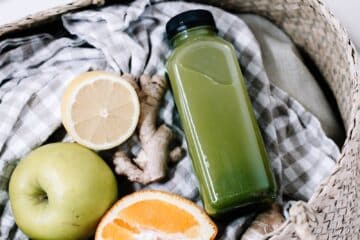Understanding Chinese Herbal Medicine
Key Points
- What Are Chinese Herbs? Chinese herbs are plants, and sometimes animal parts, used for thousands of years in China to help with health issues like pain, stress, and digestive problems. They are mixed into special formulas tailored to each person’s needs.
- How Are They Taken? You can take them as pills or mix powders with hot water to make tea. The method depends on what your body needs.
- Why Use Them? Research suggests they may help with conditions like pain, anxiety, and irritable bowel syndrome (IBS), but they’re not for everyone. A trained professional should decide if they’re right for you.
- Why Not Buy Supplements? Store-bought supplements might not be the right fit or dose for you. A Chinese medicine expert can create a formula just for you, which is safer and often more effective.
- Safety Note: While generally safe, some herbs can have side effects or be contaminated if not properly sourced. Always consult a qualified practitioner.
Chinese Herbal Medicine: A Detailed Guide
Introduction
Chinese herbal medicine is a key part of Traditional Chinese Medicine (TCM), a healing system used in China for over 2,000 years. It uses plants and sometimes animal parts to create personalized formulas to treat health issues like pain, stress, digestive problems, and more. Unlike Western medicines that often use the same pill for everyone, Chinese herbs are customized for each person’s unique needs. This guide explains what Chinese herbs are, how they’re taken, why people use them, and why you shouldn’t just buy supplements from a store. We’ll also share real examples of how they’ve helped people, backed by studies.
What Are Chinese Herbs?
Chinese herbs are natural ingredients used to make medicines that help people feel better. Most are plants, like roots, leaves, or flowers, but some formulas include animal parts, like minerals or shells. These have been used in China since at least 200 BC, as found in ancient texts like the Huangdi Neijing Britannica. The herbs are carefully chosen and mixed into formulas that match a person’s specific health needs.
There are two main types of Chinese herbs:
- Patent Herbs: These are pre-made pills, like the ones you might see in a vitamin bottle. They’re standardized, meaning they’re the same for everyone, so they’re less personalized but easier to use. Many practitioners use these because they don’t require mixing and are regulated for safety Cleveland Clinic.
- Extracts: These are powders made from individual herbs. A trained practitioner mixes them into a custom formula for you. You add the powder to hot water to make a tea. These are highly personalized and often more effective because they’re tailored to your body.
Not all practitioners can prescribe herbs. In the U.S., for example, acupuncturists need extra training and licensing, which varies by state, to mix and prescribe herbal formulas NCCIH.
Example: Corydalis for Pain Relief
A study published in Current Biology explored a plant called corydalis, used in Chinese medicine for centuries to treat pain. Researchers found a compound in corydalis called dehydrocorybulbine (DHCB) that reduced pain in mice, including acute pain, inflammatory pain, and chronic nerve pain. Unlike some pain medicines, mice didn’t build tolerance to DHCB, meaning it stayed effective over time. This suggests corydalis could be a promising natural pain reliever Los Angeles Times.
| Study Details | Corydalis for Pain Relief |
|---|---|
| Herb | Corydalis (root) |
| Compound | Dehydrocorybulbine (DHCB) |
| Test Subjects | Mice |
| Findings | Reduced acute, inflammatory, and neuropathic pain without tolerance |
| Source | Los Angeles Times |
How Are Chinese Herbs Taken?
Chinese herbs are taken in ways that suit the patient’s needs and the practitioner’s prescription. The two main forms are:
- Patent Herbs: These come as small pills or pellets that you swallow with water. They’re convenient and don’t require preparation, making them popular in clinics where practitioners order pre-made formulas from trusted suppliers.
- Granule Extracts: These are powders made from individual herbs. The practitioner mixes a specific combination for you, and you stir the powder into hot water to make a tea. This method allows for precise customization, which can be more effective for complex health issues.
The choice depends on your condition and the practitioner’s expertise. For example, someone with a simple issue might get patent herbs, while someone with multiple symptoms might need a custom tea. The process starts with a detailed health assessment, where the practitioner checks things like your pulse, tongue, and symptoms to create the right formula.
Why Take Chinese Herbs?
Chinese herbs are used to treat a wide range of health issues by restoring balance in the body, a key concept in TCM. According to TCM, health problems arise when the body’s energy, called Qi, is out of balance. Herbs help fix this balance to improve symptoms. They can help with:
- Pain: Headaches, arthritis, or muscle pain.
- Digestive Issues: IBS, bloating, or constipation.
- Mental Health: Anxiety, depression, or stress.
- Women’s Health: Menstrual cramps, irregular periods, or menopausal symptoms.
- Other Conditions: Fatigue, sleep problems, or respiratory issues.
Not everyone needs herbs, and they’re most effective when prescribed by a trained practitioner who understands your health. Studies show mixed results due to varying study quality, but some herbs have strong evidence for specific conditions NCCIH.
Example: Xiao Yao San for Anxiety and Depression
The herbal formula Xiao Yao San, also called “Free and Easy Wanderer,” has been used since the 11th century to reduce stress and improve mood. A meta-analysis of 26 randomized controlled trials with 1,837 patients found that Xiao Yao San, when used alone or with antidepressants, improved depression symptoms more than antidepressants alone, with fewer side effects. Another study with 192 patients showed it was as effective as the drug sertraline for depression and improved sleep quality. This makes it a promising option for people with anxiety or depression, especially in cancer patients The ASCO Post.
| Study Details | Xiao Yao San for Anxiety and Depression |
|---|---|
| Formula | Xiao Yao San (8 herbs) |
| Conditions | Depression, anxiety |
| Findings | Improved symptoms, fewer side effects than antidepressants |
| Study Size | 26 trials, 1,837 patients; 192-patient trial |
| Source | The ASCO Post |
Why Not Just Buy Supplements from a Store?
You might be tempted to buy herbal supplements from a health food store, but this can be risky. Store-bought supplements aren’t customized for your specific health needs, and taking the wrong herbs or doses might not help or could even cause problems. Chinese herbs require a professional assessment, similar to how a doctor prescribes medication. Practitioners are trained to:
- Assess your health through questions, pulse checks, and tongue examination.
- Choose safe, high-quality herbs to avoid contamination (e.g., heavy metals or pesticides).
- Create a formula that targets your specific symptoms.
Unlike medications, Chinese herbs often have fewer side effects, but they still need careful prescribing. For example, a study on IBS showed that customized Chinese herbal formulas improved symptoms like abdominal pain and bloating more than a placebo, with lasting benefits for some patients JAMA Network.
Example: Chinese Herbs for IBS
A 1996-1997 study in Australia tested Chinese herbs on 116 people with IBS, a condition causing stomach pain and irregular bowel movements. Patients were split into three groups: one got a standard herbal formula, another got a customized formula, and the third got a placebo. After 16 weeks, 76% of the standard formula group and 64% of the customized group reported improved symptoms, compared to 33% for placebo. At a 14-week follow-up, the customized group still showed benefits, with 75% reporting continued improvement. This shows the power of tailored herbal treatments JAMA Network.
| Study Details | Chinese Herbs for IBS |
|---|---|
| Condition | Irritable Bowel Syndrome (IBS) |
| Study Size | 116 patients |
| Groups | Standard CHM, Individualized CHM, Placebo |
| Findings | 76% (standard) and 64% (individualized) improved vs. 33% placebo; individualized group maintained benefits |
| Source | JAMA Network |
Safety Considerations
While Chinese herbs are generally safe when prescribed by a licensed practitioner, there are risks if not properly sourced. Some herbs have been found contaminated with heavy metals, pesticides, or incorrect herbs, which can cause side effects like organ damage NCCIH. To stay safe:
- Only use herbs from a qualified TCM practitioner.
- Ensure the practitioner is licensed (check with organizations like the National Certification Commission for Acupuncture and Oriental Medicine NCCAOM).
- Discuss any other medications you’re taking to avoid interactions.
Conclusion
Chinese herbal medicine offers a personalized, natural approach to treating health issues like pain, anxiety, and digestive problems. Studies, like those on corydalis, Xiao Yao San, and IBS treatments, show they can be effective, often with fewer side effects than conventional drugs. However, they must be prescribed by a trained professional to ensure safety and effectiveness. If you’re curious about Chinese herbs, talk to a licensed TCM practitioner to see if they’re right for you.
Note: This information is not a substitute for professional medical advice. Always consult your doctor before starting any new treatment. This statement has not been evaluated by the FDA.


1 Comment
психолог стара загора · January 7, 2016 at 12:44 pm
A fascinating discussion is definitely worth comment.
I do believe that you ought to write more on this issue, it may not be a taboo subject but generally people do not speak about
such topics. To the next! Best wishes!!
Comments are closed.